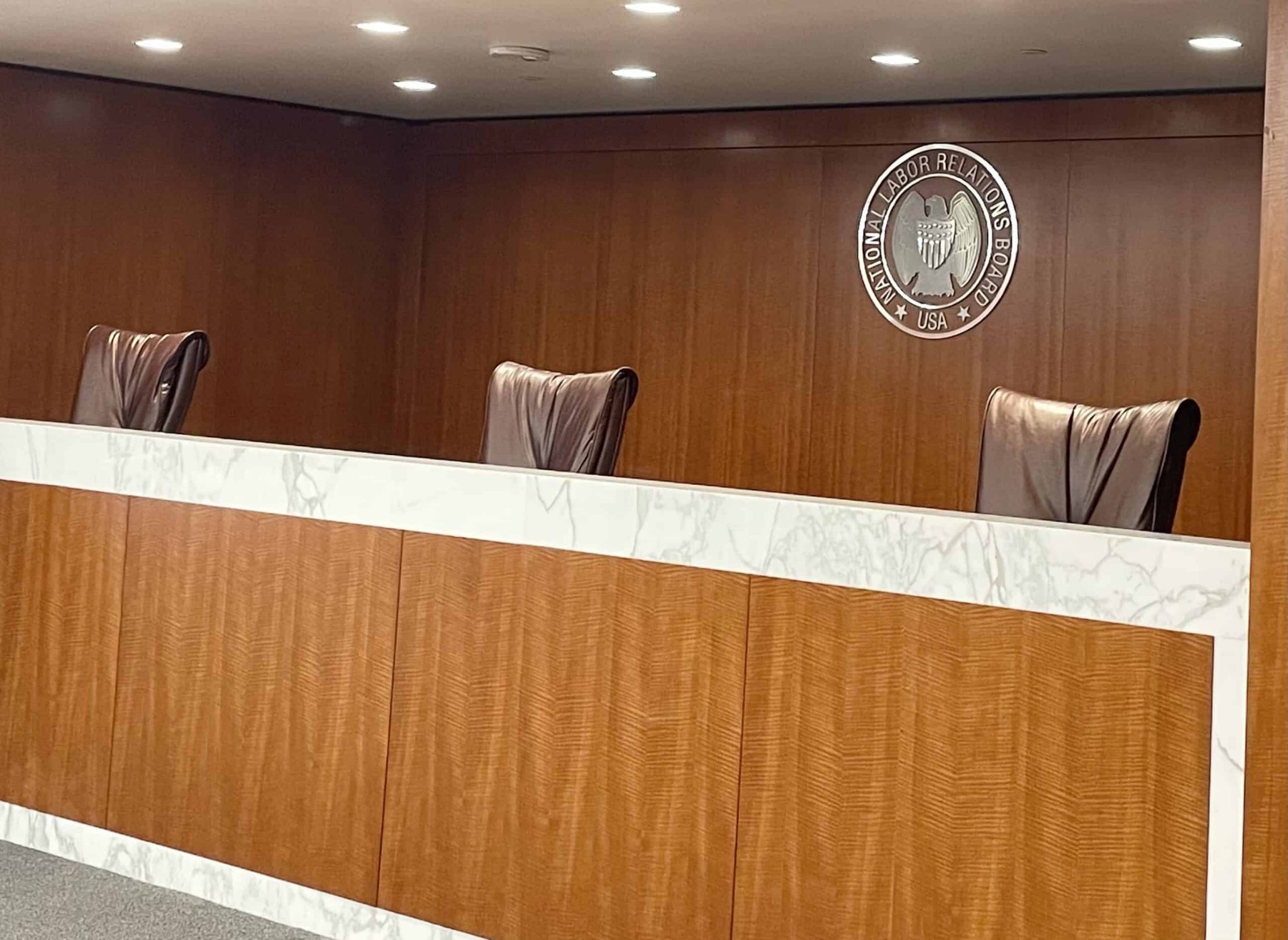
Jason Vazquez is a staff attorney at the International Brotherhood of Teamsters. He graduated from Harvard Law School in 2023. His writing on this blog reflects his personal views and should not be attributed to the Teamsters.
On Sunday the Senate approved the $369 billion Inflation Reduction Act, the Democrats’ sprawling social spending bill that may amount to “one of the single biggest investments ever made on climate.”
The final package is relatively moderate in many respects, stripping several of the more transformative and redistributive aspects of President Biden’s sweeping Build Back Better vision. Among other things, the Senate removed the billions of dollars in funding which Biden’s original proposal would have channeled to the various federal agencies charged with enforcing labor and employment laws. This omission prompted the union representing NLRB staff to unleash a stream of tweets blasting congressional Democrats for bypassing an opportunity to increase the Labor Board’s funding, which has remained stagnant for nearly a decade. The agency’s persistent budget shortfalls, the union says, have plunged it into “a crisis.”
Shifting to employment law enforcement, New York City announced on Tuesday that it has secured a $20 million agreement with Chipotle Mexican Grill to settle hundreds of thousands of alleged violations of the city’s wage and hour laws. The eye-catching sum — the largest worker settlement in the history of the Big Apple — will be distributed to nearly 13,000 current and former Chipotle employees. In unveiling the agreement, mayor Eric Adams expressed gratitude to SEIU 32BJ, which had uncovered many of the underlying violations. In this way, the settlement demonstrates unions’ important capacity not only to improve working conditions for their members but to strengthen and vindicate the rights of all working people.
Vox Media released a video essay on Tuesday exploring the collapse of union density in the private sector, which it attributed primarily to global economic trends, maximal employer resistance, and restrictive changes to federal labor law. The video succinctly describes the neoliberal forces that have unraveled the labor movement, presenting a narrative largely sympathetic to unions and workers. Yet it is most significant in that it reflects — along with the other content Vox continues to release regarding unions and unionization — the surge of enthusiasm for organized labor among many young progressives.






Daily News & Commentary
Start your day with our roundup of the latest labor developments. See all
February 27
The Ninth Circuit allows Trump to dismantle certain government unions based on national security concerns; and the DOL set to focus enforcement on firms with “outsized market power.”
February 26
Workplace AI regulations proposed in Michigan; en banc D.C. Circuit hears oral argument in CFPB case; white police officers sue Philadelphia over DEI policy.
February 25
OSHA workplace inspections significantly drop in 2025; the Court denies a petition for certiorari to review a Minnesota law banning mandatory anti-union meetings at work; and the Court declines two petitions to determine whether Air Force service members should receive backpay as a result of religious challenges to the now-revoked COVID-19 vaccine mandate.
February 24
In today’s news and commentary, the NLRB uses the Obama-era Browning-Ferris standard, a fired National Park ranger sues the Department of Interior and the National Park Service, the NLRB closes out Amazon’s labor dispute on Staten Island, and OIRA signals changes to the Biden-era independent contractor rule. The NLRB ruled that Browning-Ferris Industries jointly employed […]
February 23
In today’s news and commentary, the Trump administration proposes a rule limiting employment authorization for asylum seekers and Matt Bruenig introduces a new LLM tool analyzing employer rules under Stericycle. Law360 reports that the Trump administration proposed a rule on Friday that would change the employment authorization process for asylum seekers. Under the proposed rule, […]
February 22
A petition for certiorari in Bivens v. Zep, New York nurses end their historic six-week-strike, and Professor Block argues for just cause protections in New York City.